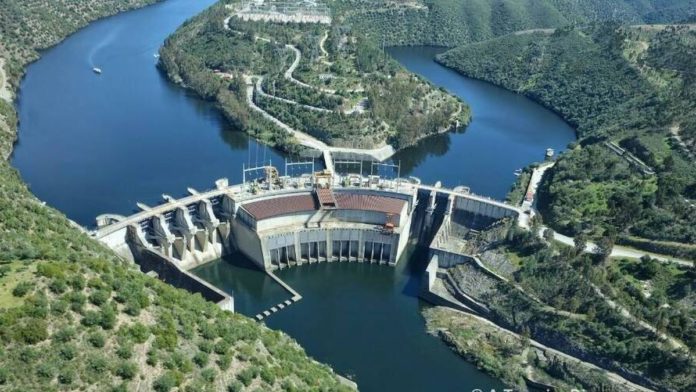- Spain allows Portugal to take double the agreed amount of water from the Tagus
Although slightly alleviated by recent rains, the drought has previously devastated the south of the country, highlighting the difficulties being endured by farmers in Alicante and Murcia who rely on water supplies from the Tagus River, one of the mightiest in Spain.
But while they cry out in pain, the Spanish authorities deliver to Portugal an annual average of 6,616 cubic hectometres of water, well above the 2,700 established by the Albufeira Convention, signed between the two countries in 1998 in order to ensure a fair distribution of the water resources of this river whose route extends on both sides of the border .
So while Portugal takes more than double the amount of water to which it is entitled, the irrigation communities of Almería, Murcia and Alicante, whose survival depends on the Tajo-Segura transfer, see their farms and their orchards dry up.
Their demands that the Government reduces the amount of water transferred to Portugal are being completely ignored, as it continues to open the tap to it’s neighbour much more than it should.
“It is a policy of destruction. We need the water from the Tagus because it is ours, but it is being unjustifiably delivered to Portugal, while the Ministry of Ecological Transition says that the river has no water,” complains Eladio Aniorte, who has been president of the Agrarian Association of Young Farmers (ASAJA). ) from Alicante for 42 years.
The Albufeira Convention is the agreement that regulates the distribution of resources between the rivers shared by Spain and Portugal since 1998. The text establishes that Spain must annually transfer a minimum of 2,700 cubic hectometres of water from the Tagus to the neighbouring country. Normally, if there is no drought and there are surpluses, more water usually arrives, even amounts greater than 8,000 cubic hectometres, according to data from the Tagus Hydrographic Confederation. The transfer of the water is delivered from the Cedillo reservoir, in Extremadura, and shared with Portugal, whose operation depends on Iberdrola.
Until 2008, Spain could transfer water at its convenience, as long as it complied with the agreed amount. As of that year, both countries established weekly quotas of seven cubic hectometres and quarterly quotas of between 130 and 350, which have almost always been exceeded.
What is surprising is that, in the midst of the current severe drought, the average amount of water transferred to Portugal has remained at a level that is above double what was agreed.
“Agriculture, after tourism, is the main pillar of this country and it is constantly ignored. The 600 environmental advisers of Minister [Teresa] Rivera want us to abandon crops while there is water left over from the rivers which they either give to Portugal or divert it into the sea, for later desalination. It’s not fair,” laments Aniorte.
He says that “in Spain there are 50,000 cubic hectometres of surplus water that go to the sea annually” and that the “environmental measures” are intended to correct the problems of farmers in the southeast of the peninsula with the seawater desalination.
“Why do we desalinate sea water if we already have water? What has been done throughout life has been to use the water from the rivers, and in all parts of the world, except here, water is taken from where it is left over to where it is needed. Desalinating water is fine, but river water cannot be replaced by this mechanism. The ecological and economic impact can be devastating”, says Aniorte, who continued by stating that the cost of a cubic meter of desalinated water can be “up to 2 euros”, while currently, the water from the transfer costs just 0.30 euros per cubic meter. “It is unsustainable,” he states. The last great drought in the Segura basin caused losses of 220 million euros, with farmers being those who were affected most.
Meanwhile, the Tagus continues to deliver more water to Portugal than will ever reach this area.





